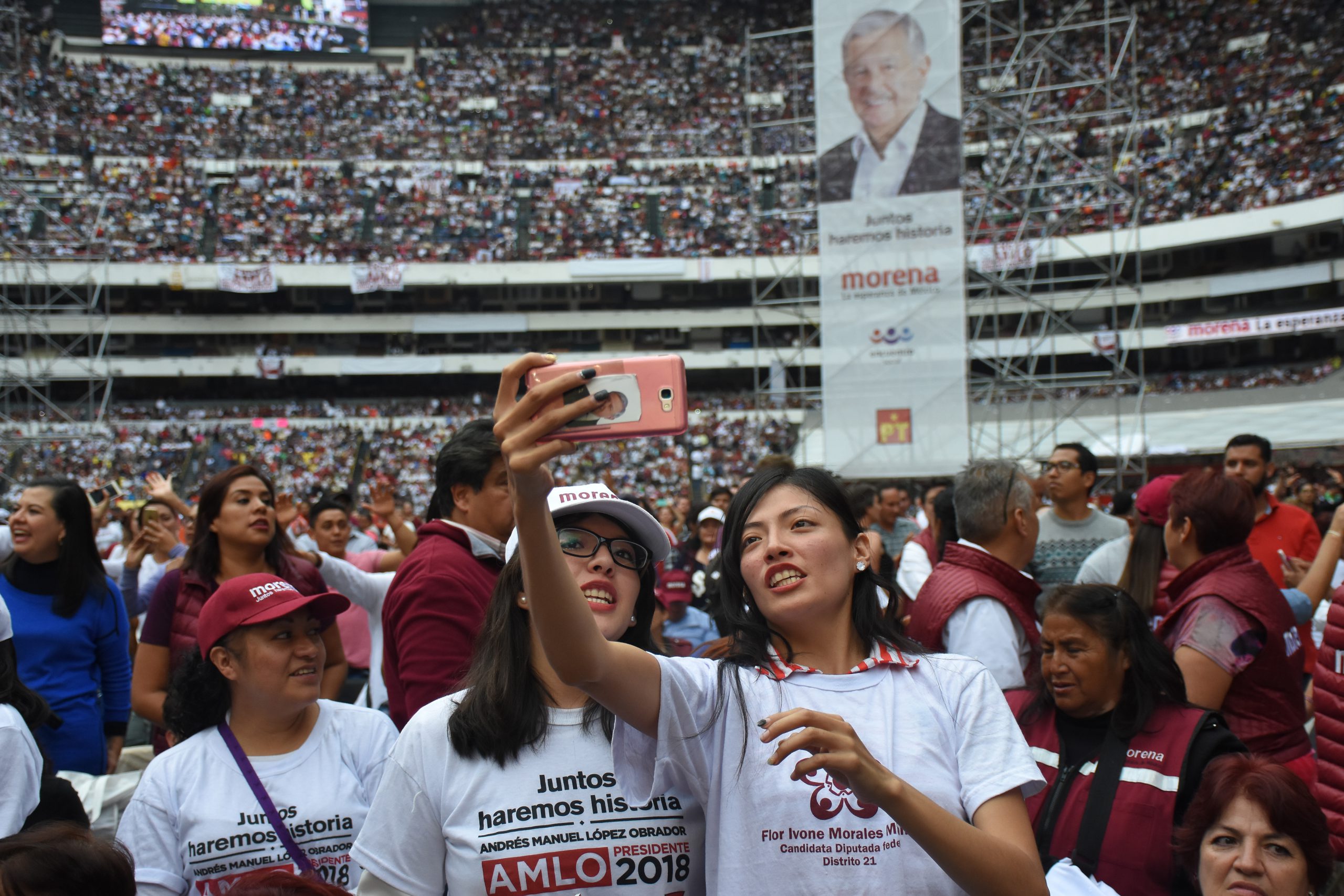MEXICO CITY – Nostalgia may be a natural human trait, but nostalgic Mexicans today are facing a dilemma: choosing between different, and dueling, views of the past. On the one hand, President Andrés Manuel López Obrador, or AMLO, wants to recreate a distant era that few living Mexicans even knew. On the other side, we find many Mexicans that assume that the AMLO administration is a passing phenomenon—a dream or a nightmare depending on one’s perspective—so that things will go back to where they were when he took over. Neither is possible, and therein lies the ongoing fight for the future.
Many Mexicans, perhaps a majority, expect normalcy to resume once the current administration ends. The problem with that view is that AMLO’s election was not the result of chance, but of a society tired with the status quo and endless promises of improvement in daily life that failed to materialize. If one puts together the circumstances that led to the 2018 election and the nature of the AMLO coalition and his actions, returning to the past is all but inconceivable.
The question then becomes what kind of future awaits Mexicans after AMLO. The fight for the future is ongoing at several levels. On the one hand, harsh reality has meant that the economy is not growing and the government’s frame of reference—“the State is in charge and everybody follows”—is incompatible with the kind of competition for investment that is the trait of the 21st century. Although the government would like to attract private investment, both domestic and foreign, it fails to accept the rationale that it must create conditions for it to materialize and that, ultimately, it cannot force anyone to save or invest.
The government’s actions and rhetoric, particularly by cancelling the new Mexico City airport and, above all, by eliminating or neutralizing key regulatory agencies, have frightened off investors. Investment has kept flowing to maintain existing lines of production, and there have been several acquisitions of Mexican companies by foreign entities. “Carry trade”, given the beneficial interest rate differentials, has continued to attract portfolio investment in government securities, but there’s not a single new direct investment project in the works.
The president’s perspective was shaped during the 1960s and 1970s, an era of fast economic growth, high social mobility and, at least until the beginning of the 1970s, order and relative peace. In his hometown of Macuspana, in the oil-rich state of Tabasco, PEMEX would provide for the community and there was no need to attract private investments or create jobs. That very basic reality from the 1960s seems to animate his bigger plans for dominating Mexican politics in the 21st century, a contradiction that has been overshadowed by the president’s enduring popularity and skill at evading harsh questions in his daily early morning encounters with the media.
The issue at heart is the radical contrast in perspectives that the various constituencies around the president and AMLO himself harbor vis-à-vis Mexican politics and democracy. For all of them, Mexican democracy was born in 2018 and everything that existed before must be eradicated while, at the same time, it confers upon the government full legitimacy not only to do as they please with the past, particularly the reforms of the past few decades, but also to shape the future. But what about the next presidential election?
From 2000 on, Mexicans grew accustomed to competitive elections and the alternation of political parties in power, and the 2018 election was different only in that it brought the left into government for the first time. But the issue is far more relevant than it might appear at first sight. The question percolating inside the president’s Morena “movement” is whether to attempt to stay in power by winning elections (the old-fashioned way) or whether to stick to power at any cost. There are plenty of constituents for both perspectives within the party. The next issue looming as part of this divide dwells on the National Electoral Institute’s looming new appointments: Will Morena impose itself and nominate members of its own or will it open the game for all political parties to participate as a Congress is supposed to do?
Sooner or later, the obvious contradictions between the government’s actions and lack of economic delivery will erode the president’s popularity and force him to confront the need to take a different approach. The key factor that determines the nature of the coming challenge is the president’s deeply-felt commitment to a zero, or close to zero, fiscal deficit. Avoiding a financial crisis is crucial to his political perspective. Hence, his actions have not brought high levels of inflation that, in the past, quickly delegitimized several administrations. The flip side of the equation, stagnation, takes longer to bite into people’s livelihoods, but is gradually ever more visible in the difficulty of finding jobs, lower consumption of some non-key services and the like.
At some point, the president will be forced to radicalize, accept reality or change to make a series of reforms that Mexico does need to attack corruption, reduce poverty and increase social mobility, three key components of his electoral program that previous administrations refused to countenance. Unfortunately, the latter is almost inconceivable and, thus, the question is whether Mexico’s future will be another failed and mediocre administration (the best one can hope for at the moment) or a radicalization of the administration. Much rides on what happens on the midterms of 2021.









